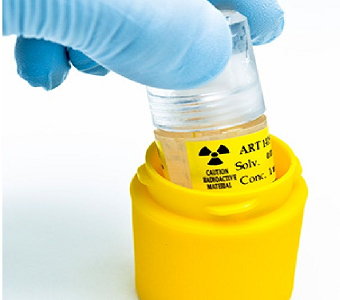The 48% decline seen for shares of Questcor Pharmaceuticals (NASDAQ:QCOR) Wednesday prompts the key question of: What to do with the stock now? As a former sell-side analyst, I deal with these kinds of decisions by backing away from the action for a moment and evaluating the stock on its new valuation with the new information, trying to remove any former biases. In other words, the old Buyside axiom applies: “You buy your stocks everyday.” In the case of QCOR, the Bulls have phoned Aetna (NYSE:AET) directly to clarify the new policy bulletin, and have also followed up with other insurers like Anthem, Blue Cross/Blue Shield, Cigna (NYSE:CI), and United Health (NYSE:UNH) to get their stance on reimbursing the company’s primary value driver, H.P. Acthar Gel (Acthar). On its conference call this morning, management emphasized that physicians prescribing Acthar do so on a low volume “case-by-case” basis, and that ensuring health insurance reimbursement for the drug is a key part of the process. The conclusion is that most health insurers will continue to reimburse the product per coverage policy decisions that they made this past summer. Importantly, Aetna will also reimburse for treatment, as long as patients are not able to use corticosteroids to treat illnesses where Acthar is used currently such as multiple sclerosis (MS) flares, nephrotic syndrome (NS), or dermatomyositis/polymyositis (DM/PM). So in fact, Acthar will continue to be reimbursed by Aetna and other major insurers, but doctors will have to document that patients have failed or are intolerant to steroid use, which is fairly easy to do. According to the company on this morning’s conference call, “case-by-case” prescribing is consistent with how Acthar is currently being prescribed, and QCOR is planning to meet with Aetna in the next few weeks to provide information and make sure that patients that meet the coverage hurdles continue to have access to the drug via a doctor’s authorization. Because physicians already use Acthar when other therapies have been exhausted, we believe that the Aetna bulletin was likely released as a reminder to doctors that earlier-line treatments must be tried before prescribing the drug, and that failure/intolerance must be documented. Given that Acthar is already used in the minority of patients that have failed or can’t tolerate corticosteroids (or other front-line therapies), the risk to the company’s current base of sales seems minimal. We note that Medicaid’s recent decision to begin reimbursing Acthar at levels which allow the company to make a profit exemplifies that health insurers, in fact, agree that the drug is a useful product in certain patient populations. Additionally, the new profits from Medicaid patients may serve to offset any lost sales if the Aetna bulletin has an impact – see PropThink’s prior coverage here.
Incorrect Username And/Or Password
Please Complete Registration
Completing the following survey to access content
Register for FREE to access
Don't worry - this will only take a minute
Please Enter Your First Name.
Please Enter Your Last Name.
Please Enter A Valid Email.
Please Enter A Valid Password. Must Be At Least 8 Characters .
To continue with registration, you must agree to our terms of service
Already A Member? Sign In
Which Best Describes You?
Which Best Represents You?
Which Opportunities Interest You?
(Select All That Apply)
Please Select At Least One Interest From Each Row
Which Opportunities Interest You?
(Select All That Apply)
Please Select At Least One Interest
Which Opportunities Interest You?
(Select All That Apply)
Please Select At Least One Interest From Each Row
Which Opportunities Interest You?
(Select All That Apply)
Please Select At Least One Interest
A person who either:
Earned income that exceeded $200,000 (or $300,000 together with a spouse) in each of the prior two years, and reasonably expects the same for the current year,
OR
Has a net worth over $1 million, either alone or together with a spouse (excluding the value of the person’s primary residence).
Read More here.
I manage or have discretionary assets of
Please Select Your Asset Size
Registration Complete
You're all done! We've sent you a confirmation email that includes a verification link. To access the page you're interested in, check your email inbox(including spam folder) and click the verification link.
Four
Five
Please Confirm Your Email!
We've sent you a confirmation email that includes a verification link. To access the page you're interested in, check your email inbox and click the verification link.
If you cannot find it, be sure to check you "SPAM" or click "RESEND EMAIL" below.
Forgot your password?
Enter the email address associated with your account and we'll send you details on how to reset your password.
Reset Link Emailed
A email with details on resetting your password has been sent.
Your question is submitted. Our moderators are reviewing the question and will approve it shortly.
Downgrade Account
You are not logged in
Join now, it's free:
Member sign-in:
RESTRICTED ACCESS. PROPTHINK PREMIUM.
PROPTHINK PREMIUM.
Professional Edge
Proven Returns
Proprietary Access

Already A Member?Login

Professional Edge
Proven Returns
Proprietary Access
Already A Member?Login
Forgot your password?
Enter the email address associated with your account and we'll send you details shortly.
You're trying to access some of PropThink's Members-Only Content.
You can sign up for a FREE PropThink membership, unlocking significantly more of PropThink’s features, by clicking here. All it takes is an email address.
Better yet, try PropThink Premium. Click here to read more about the features of PropThink Premium, and get 50% off your first month!



